Self-Care
Things You Should NEVER Do in the Shower
Published
12 months agoon
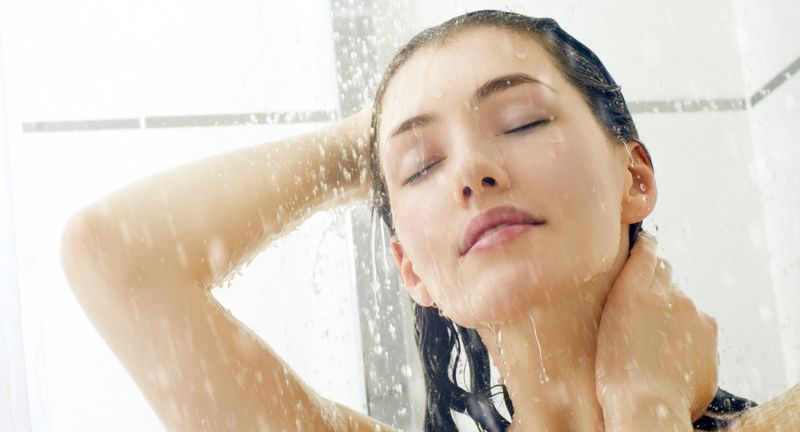
Shutterstock
Showering is a daily ritual for many, offering a moment of solitude and relaxation while also serving the practical purpose of keeping us clean. However, what seems like a straightforward task can be fraught with common mistakes that may compromise our health, safety, and the environment. From the misuse of products to neglecting cleanliness in the shower space, there are numerous pitfalls to avoid. This guide highlights 25 things you should never do in the shower, emphasizing the importance of mindful practices that protect your skin, conserve resources, and extend the life of your bathroom essentials. By being aware of these often-overlooked errors, you can enhance your shower routine for a healthier, safer, and more sustainable approach to personal care.
Use Electronics
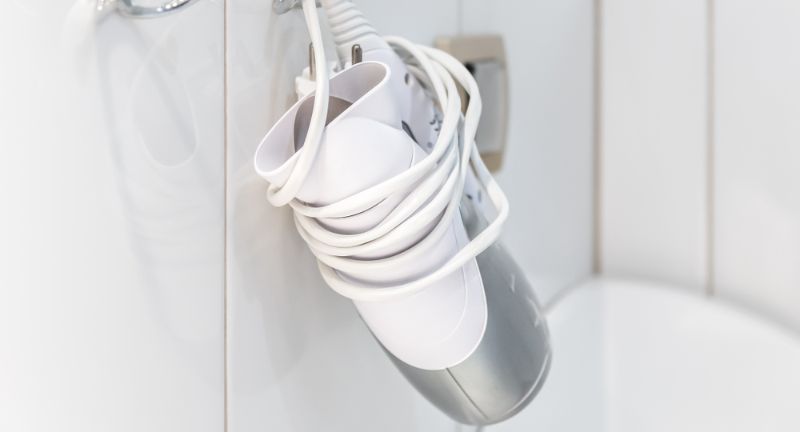
Shutterstock
Bringing electronics into the shower is not only a safety hazard but also risks damaging the device. The combination of water and electricity can lead to electrocution or short-circuiting. It’s best to keep devices away from water to ensure both your safety and the longevity of your electronics.
Shave Without Proper Lubrication
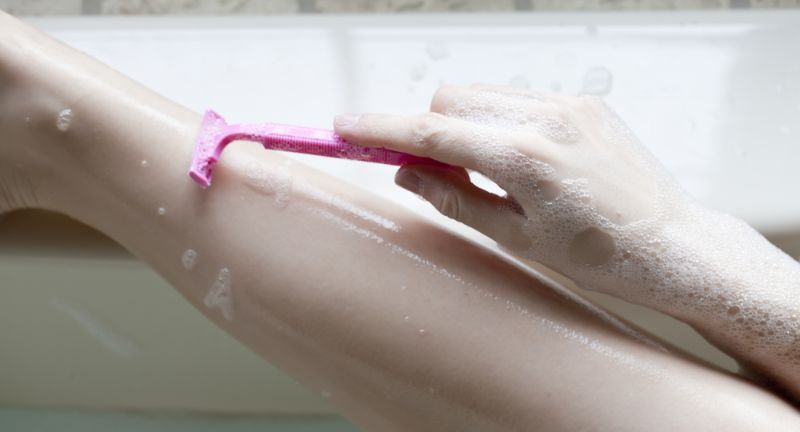
Shutterstock
Shaving without using a cream or gel can lead to skin irritation, as well as nicks and cuts. Proper lubrication helps the razor blade glide smoothly over the skin, reducing the risk of injury. Always ensure your skin is moist and well-lubricated before starting to shave to protect your skin’s health.
Ignore Foot Hygiene
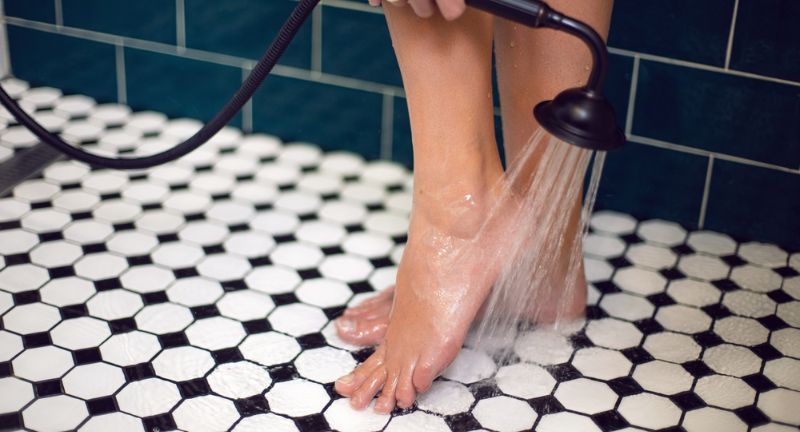
Shutterstock
Many people overlook the importance of thoroughly cleaning their feet in the shower, which can lead to fungal infections such as athlete’s foot. It’s essential to scrub between your toes and the soles of your feet to remove dirt and prevent bacteria growth. Regular foot hygiene is a key part of overall body care and can prevent common foot problems.
Over-Exfoliate
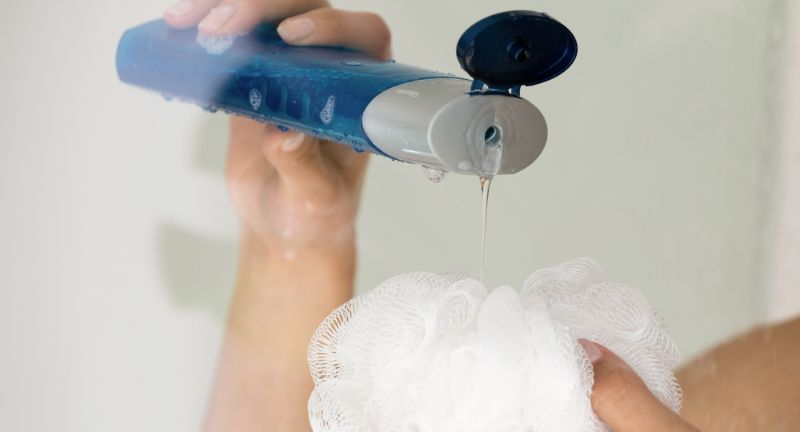
Shutterstock
Exfoliating too frequently or with too much force can damage the skin, leading to irritation and stripping away natural oils. This protective barrier is essential for keeping skin hydrated and healthy. Limit exfoliation to a few times a week and use gentle products to maintain your skin’s natural balance.
Use Extremely Hot Water
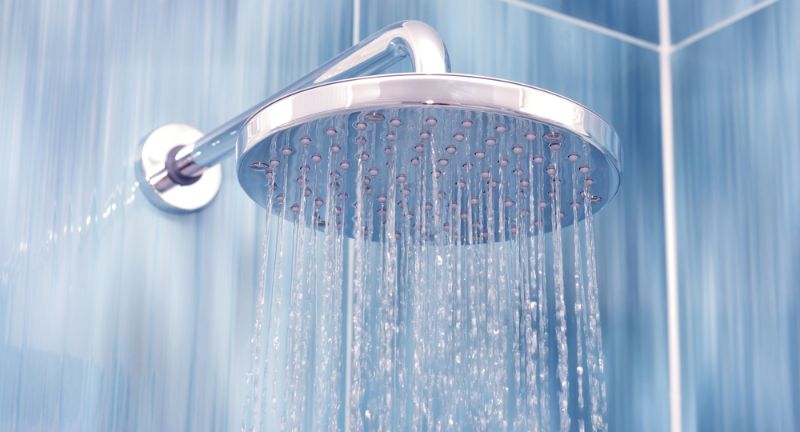
Shutterstock
Showering with water that is too hot can dry out and irritate your skin and hair. Hot water strips away essential oils and moisture, leading to dryness and potential damage. It’s advisable to use warm water instead and finish with a cooler rinse to close the pores and lock in moisture.
Leave the Shower Curtain Inside the Tub
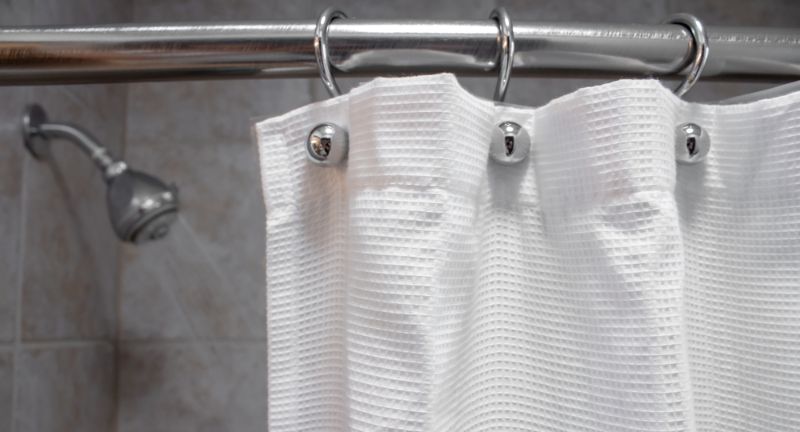
Shutterstock
Leaving the shower curtain inside the tub can trap moisture and create an environment conducive to mold and mildew growth. It’s important to partially leave the curtain outside the tub to allow for better air circulation and faster drying. This simple habit can greatly reduce the buildup of unwanted mold and keep your bathroom cleaner and healthier.
Ignore Hair in the Drain
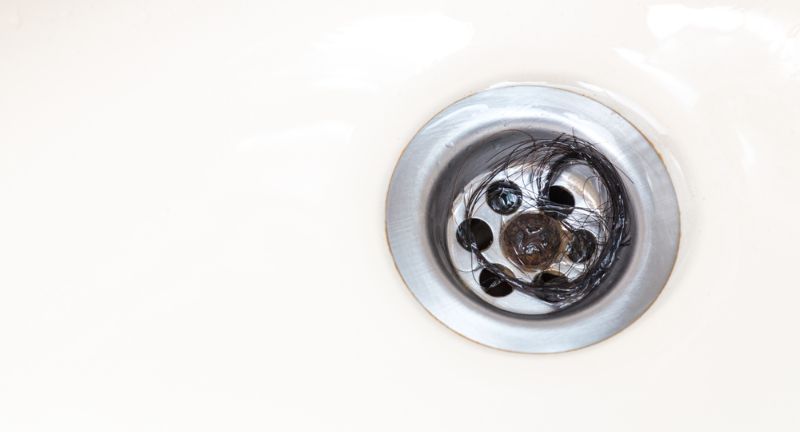
Shutterstock
Hair buildup in the shower drain is not only unsightly but can also lead to clogs and plumbing issues. Regularly cleaning out the drain can prevent water from backing up and reduce the need for costly repairs. A simple drain catcher can be an effective solution to catch hair before it causes problems.
Take Overly Long Showers

Shutterstock
While it may be tempting to linger in the shower, especially on cold mornings, taking overly long showers can waste a significant amount of water and energy. Additionally, prolonged exposure to water can strip the skin and hair of natural oils, leading to dryness. To conserve water and maintain healthy skin and hair, it’s best to keep showers brief and efficient.
Skip Moisturizer Afterwards
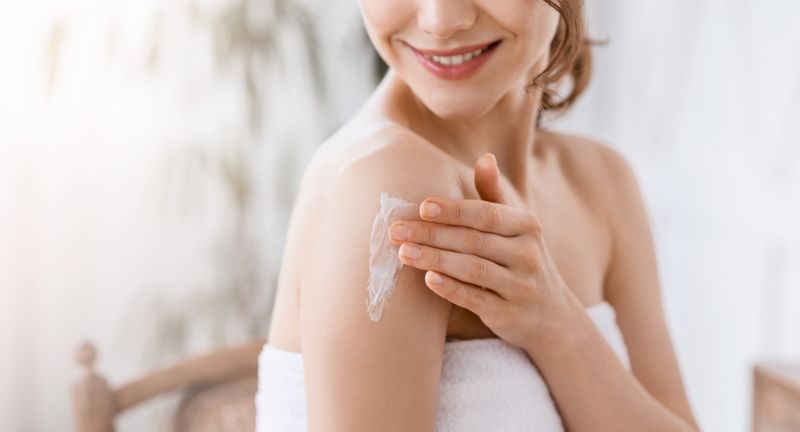
Shutterstock
Not applying moisturizer after a shower can leave your skin feeling dry and tight. The best time to moisturize is when your skin is still damp, as this helps to lock in moisture and keep your skin hydrated longer. Incorporating this step into your post-shower routine can significantly improve your skin’s health and appearance.
Use Harsh Chemical Cleaners
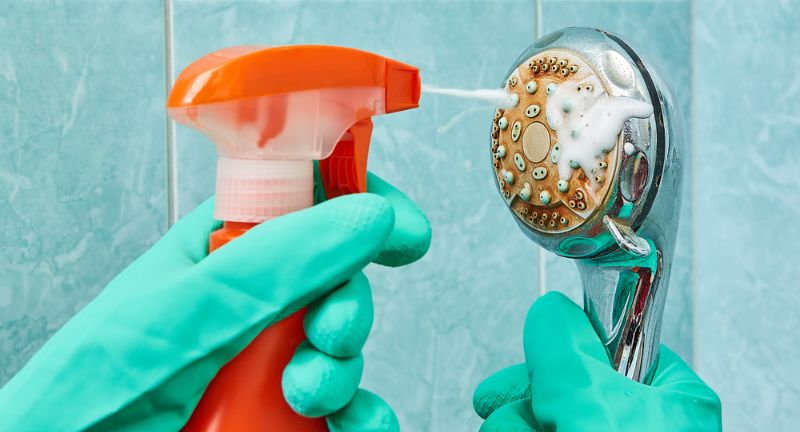
Shutterstock
Using harsh chemical cleaners in the confined space of a shower can be harmful to your respiratory system due to the inhalation of toxic fumes. These chemicals can also damage the surfaces of your shower over time. Opting for natural, less abrasive cleaning solutions can protect your health and the longevity of your shower surfaces.
Shower in Dirty Conditions
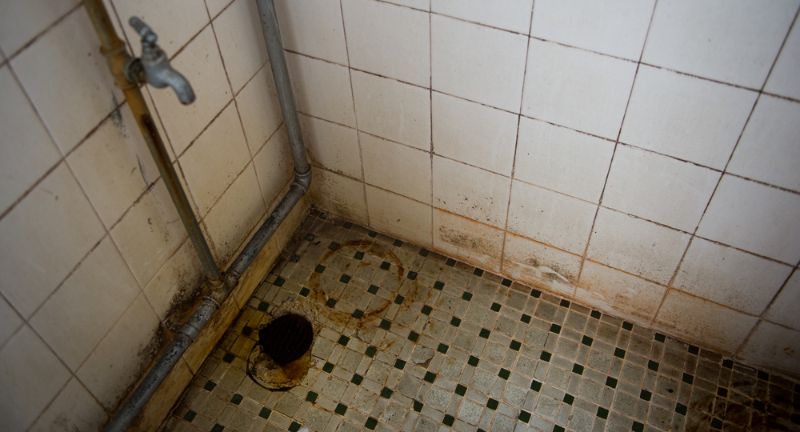
Shutterstock
Showering in a space that’s not regularly cleaned can expose you to harmful bacteria and mold, which thrive in warm, moist environments. It’s crucial to clean your shower regularly to prevent the buildup of these unwanted guests. A clean shower not only promotes better hygiene but also enhances your overall showering experience.
Use Old Razors
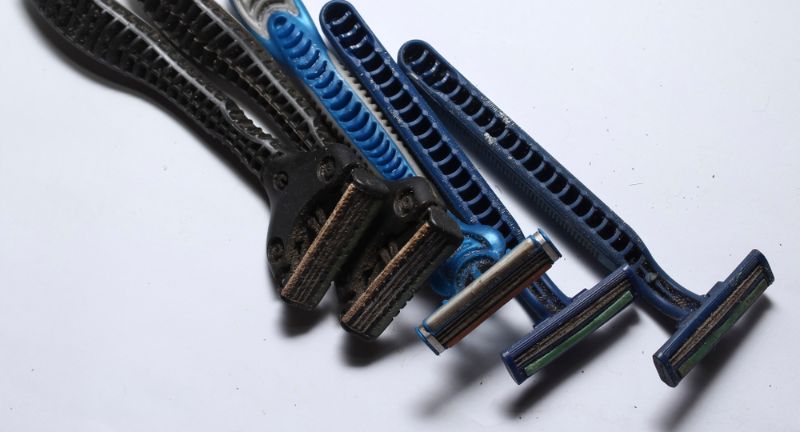
Shutterstock
Using a dull or old razor can irritate the skin and increase the likelihood of nicks and cuts. A sharp blade ensures a smoother, closer shave and reduces the risk of injury. To maintain optimal shaving conditions, replace your razor blades regularly or when you notice a decrease in performance.
Share Personal Care Items
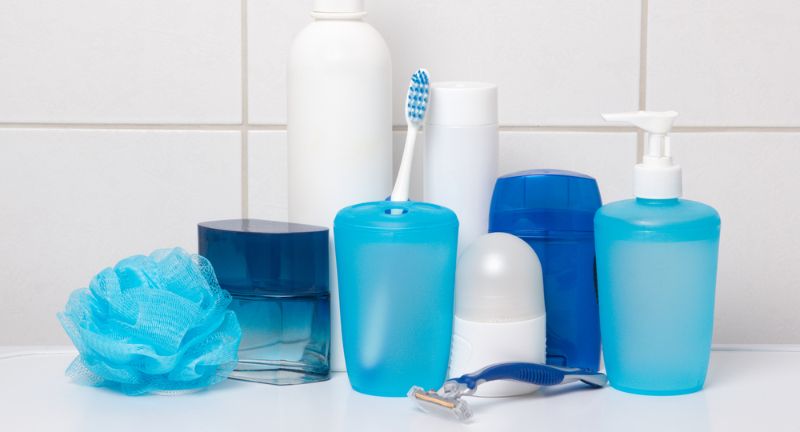
Shutterstock
Sharing personal care items like razors can spread skin infections and diseases. Each person’s skin flora is unique, and sharing can disrupt this balance, leading to potential health issues. It’s best to use individual items to ensure hygiene and prevent the spread of infections.
Neglect Showerhead Cleaning
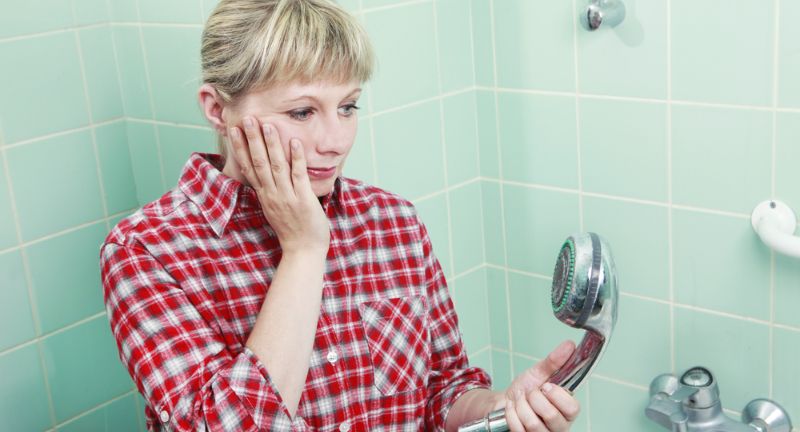
Shutterstock
A dirty showerhead can become a breeding ground for bacteria, which can then be sprayed directly onto you during use. Regular cleaning of the showerhead can prevent this and also improve water flow and pressure. Descale and disinfect your showerhead every few months to keep it functioning properly and hygienically.
Ignore Leaks
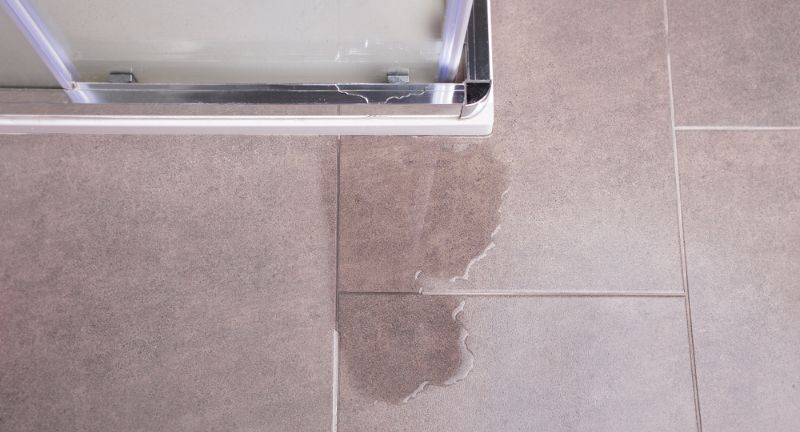
Shutterstock
Ignoring leaks in your shower can lead to increased water bills and potential water damage over time. A small drip can waste a significant amount of water if left unattended. Addressing leaks promptly can save money and prevent the growth of mold and mildew, which thrive in damp environments.
Skip the Cold Rinse
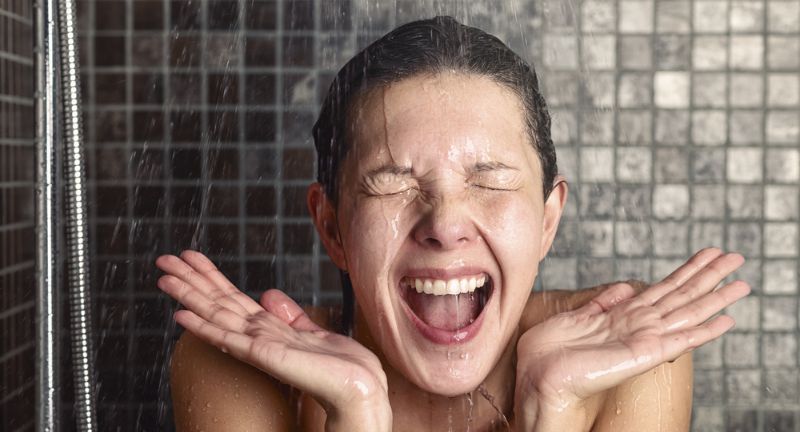
Shutterstock
Finishing your shower with a cold rinse can have multiple benefits, including closing pores and improving circulation. This practice can also help to seal the cuticles of your hair, leading to shinier and smoother hair. Incorporating a cold rinse into your routine can invigorate your body and enhance your skin and hair health.
Brush Your Teeth
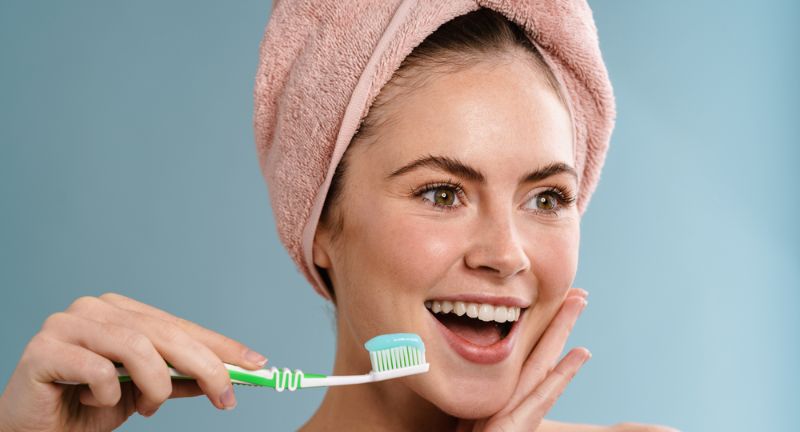
Shutterstock
Brushing your teeth in the shower might seem like a time-saver, but it can actually waste water and potentially expose your toothbrush to bacteria and mold. It’s more efficient and hygienic to brush your teeth at the sink, where you can control water use and keep your toothbrush in a cleaner environment. Keeping dental hygiene separate from your shower routine ensures better water conservation and oral health practices.
Wash Your Face with Body Soap
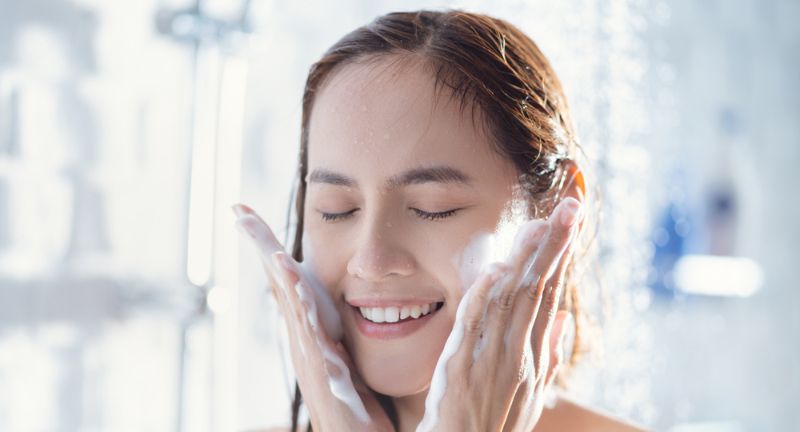
Shutterstock
Using body soap on your face can strip away natural oils and disrupt your skin’s pH balance, leading to dryness and irritation. The skin on your face is more delicate than the rest of your body and requires a gentler cleanser. Opt for a facial cleanser tailored to your skin type to maintain healthy, balanced skin.
Leave Soap Bars in Water
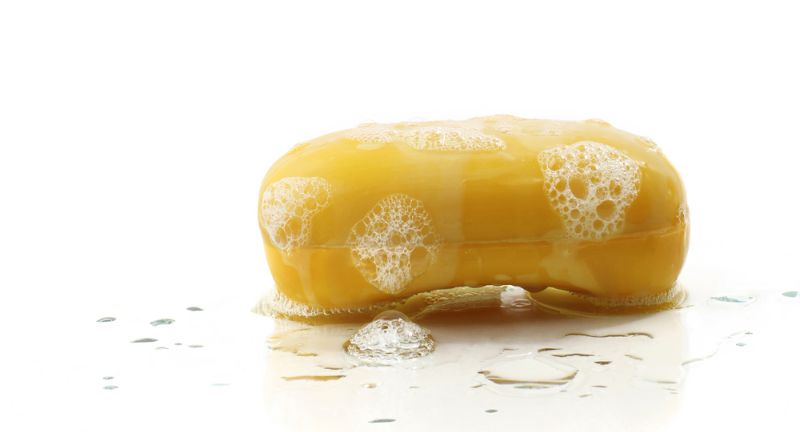
Shutterstock
Soap bars left in standing water can become mushy and dissolve more quickly. To prolong the life of your soap, use a soap dish with drainage to keep it dry between uses. This small change can save you money and reduce waste by extending the usability of your soap bars.
Use Contaminated Loofahs or Sponges
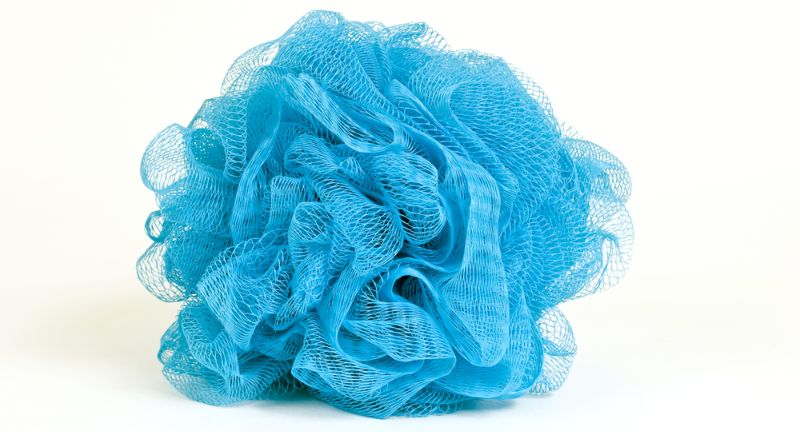
Shutterstock
Loofahs and sponges can harbor bacteria and mold if not cleaned and dried properly. It’s important to rinse them thoroughly after each use and allow them to dry in a well-ventilated area. Replacing your loofah or sponge regularly is also crucial to prevent the spread of bacteria onto your skin.
Stand on One Foot Without Support
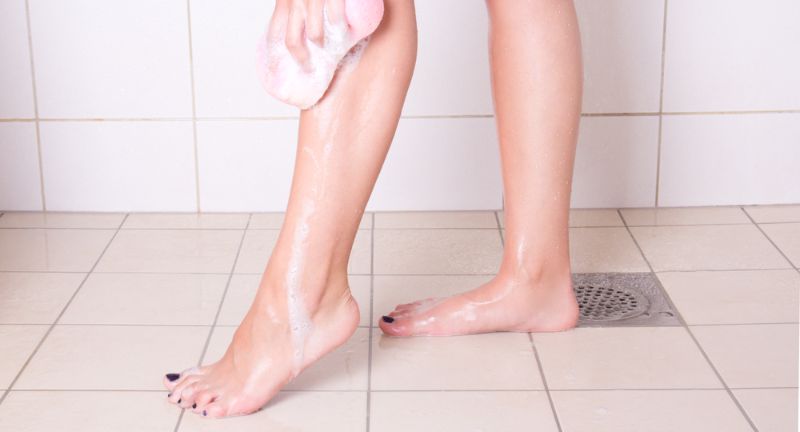
Shutterstock
Attempting to balance on one foot in the shower without support can lead to slips and falls, especially on wet surfaces. It’s safer to use a non-slip mat and install grab bars if necessary to maintain stability. Taking precautions to prevent falls is essential for ensuring a safe showering experience.
Perform Deep Conditioning Treatments Frequently
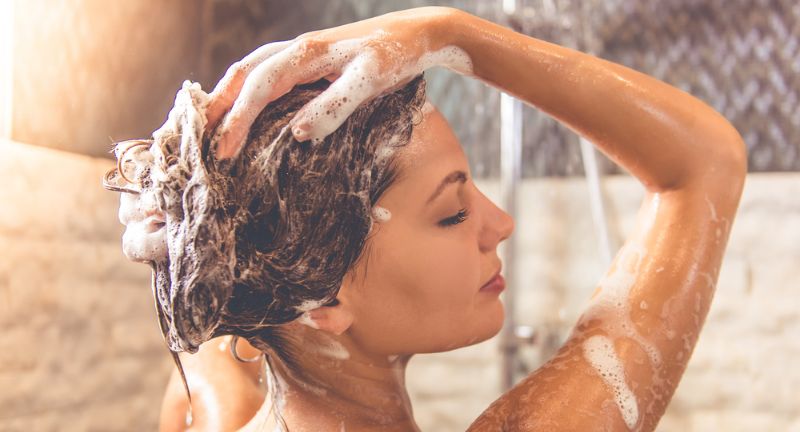
Shutterstock
While deep conditioning treatments can be beneficial for your hair, using them too frequently can lead to buildup and weigh down your hair. It’s important to follow the product instructions and use these treatments as recommended. Balancing deep conditioning with regular cleansing will keep your hair healthy and avoid negative effects from overuse.
Ignore Skin Reactions
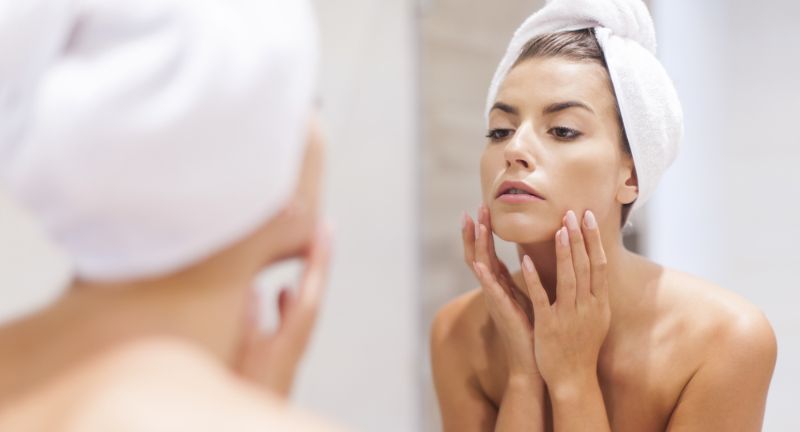
Shutterstock
If you notice your skin reacting negatively to a product, it’s important to stop using it immediately to prevent further irritation. Skin reactions can be a sign of an allergy or sensitivity to certain ingredients. Consulting with a dermatologist can help you identify the cause and find suitable alternatives for your skin care routine.
Let the Water Run Unnecessarily
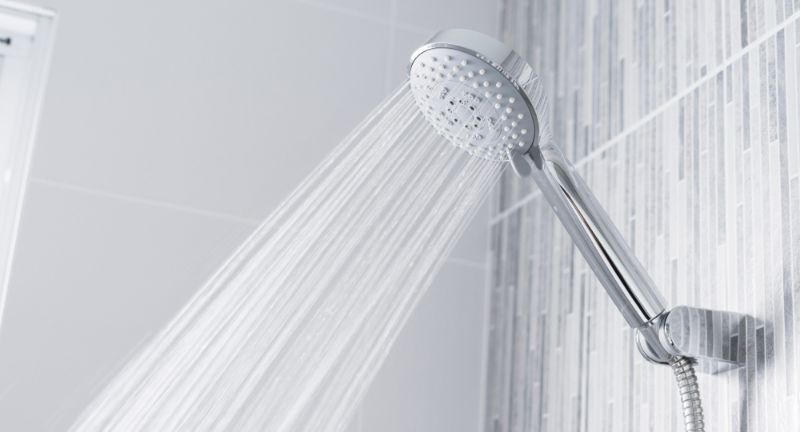
Shutterstock
Leaving the water running while you’re not actively using it is a wasteful habit that can significantly increase your water usage and utility bills. It’s more environmentally friendly and economical to turn off the shower while lathering or shaving. Adopting this practice helps conserve water and contributes to the sustainability of our planet’s resources.
Store Electronics Nearby
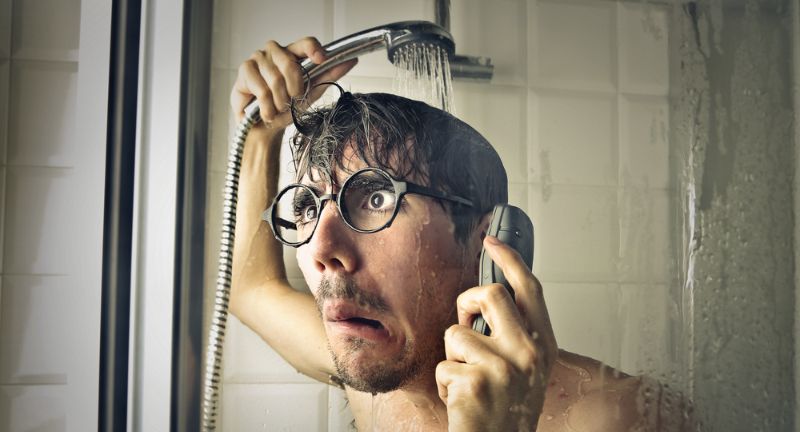
Shutterstock
Storing electronics too close to the shower can expose them to steam and humidity, potentially causing damage over time. Even if they’re not directly in contact with water, the moisture can corrode electronic components and shorten their lifespan. It’s best to keep your gadgets in a dry place away from the bathroom to avoid unnecessary repairs or replacements.
Conclusion
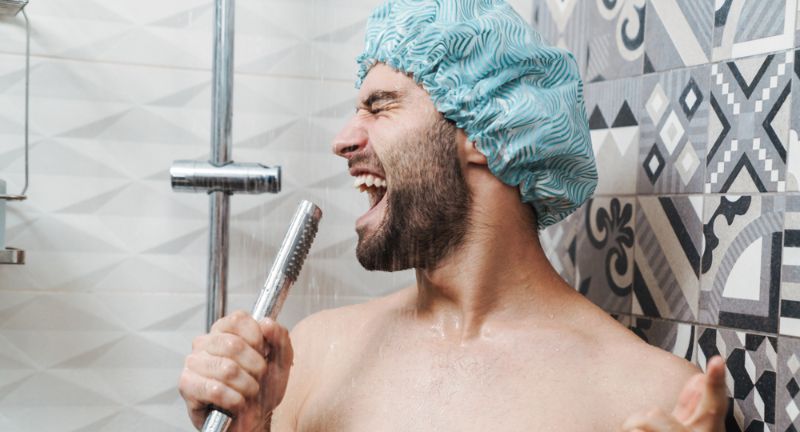
Shutterstock
Adopting mindful habits in the shower is more than just about personal care; it’s about embracing a lifestyle that prioritizes well-being, safety, and environmental consciousness. By avoiding these common mistakes, you not only safeguard your health and preserve the integrity of your bathroom fixtures, but you also contribute to water conservation and reduce unnecessary waste. Whether it’s by choosing the right products, maintaining cleanliness, or being efficient with your water use, each small change can have a significant impact. Let this guide inspire you to refine your shower routine, turning everyday practices into opportunities for nurturing your body and the planet. With each mindful adjustment, you contribute to a cycle of wellness that extends beyond the confines of your bathroom.












